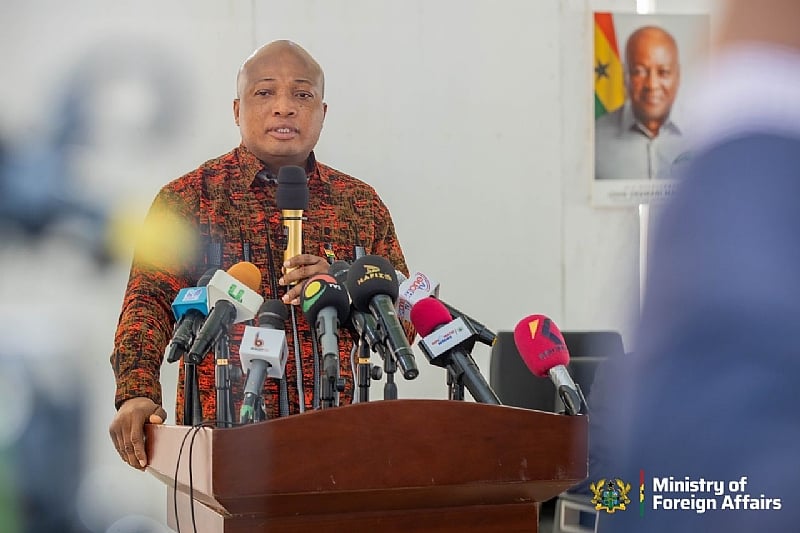Ghana’s decision to temporarily host West African nationals deported from the United States has sparked controversy and ignited a debate on humanitarian principles, pan-African solidarity, and the implications of cooperating with international immigration policies. The agreement, confirmed by President John Mahama, involves providing temporary refuge for deportees, primarily Nigerians and a Gambian, to facilitate their safe transit back to their respective home countries. While the government defends the move as an act of compassion and regional responsibility, critics have raised concerns about the potential endorsement of what some perceive as discriminatory immigration practices.
At the heart of the debate lies the tension between upholding humanitarian ideals and the potential ramifications of collaborating with controversial immigration policies. The Ghanaian government, represented by Foreign Minister Samuel Okudzeto Ablakwa, maintains that the decision stems from a deep commitment to humanitarian principles and pan-African solidarity. They argue that providing temporary shelter and assistance to these individuals prevents further human suffering and reinforces Ghana’s role as a responsible regional actor. Furthermore, they emphasize that the agreement was made without any expectation of financial compensation or material benefit, underscoring the purely humanitarian nature of the gesture.
Critics, however, argue that accepting deportees could be interpreted as tacit approval of potentially discriminatory immigration policies. They contend that by facilitating the return of these individuals, Ghana may inadvertently contribute to the legitimization of practices they consider unjust or racially motivated. This perspective raises questions about the delicate balance between providing assistance to those in need and the potential for such actions to indirectly support policies that may be seen as harmful.
The government’s justification rests on Ghana’s historical role as a beacon of pan-Africanism and a haven for those seeking refuge. Mr. Ablakwa highlighted Ghana’s long-standing tradition of welcoming individuals from the African diaspora, offering them safe haven, resources, and even citizenship. He pointed to this history as evidence of Ghana’s deep commitment to pan-African principles and its willingness to extend support to fellow Africans in need. This historical context provides a framework for understanding the government’s decision, placing it within a broader narrative of solidarity and support for the African diaspora.
The debate surrounding the acceptance of deportees also underscores the complexities of international relations and the challenges of navigating cooperation with other nations while upholding one’s own values. The Ghanaian government emphasizes the importance of transparency and accountability, highlighting President Mahama’s decision to publicly disclose the agreement. They maintain that this transparency demonstrates their commitment to open governance and their willingness to engage in dialogue about potentially sensitive issues. However, critics argue that transparency alone does not address the underlying concerns about the implications of cooperating with immigration policies they find objectionable.
The controversy surrounding Ghana’s decision to temporarily host deportees highlights the intricate interplay of humanitarian principles, international relations, and the challenges of balancing compassion with the potential consequences of cooperating with controversial policies. While the government defends the move as an act of humanitarianism and pan-African solidarity, critics raise concerns about the potential endorsement of discriminatory practices. The ongoing debate underscores the complex considerations involved in navigating international cooperation while upholding one’s own values and principles. As the situation unfolds, it will be crucial to carefully examine the long-term implications of this decision and its potential impact on both the individuals involved and the broader international landscape.


